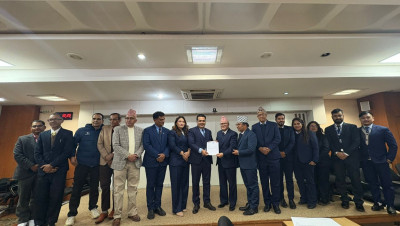Question to Rastriya Swatantra Party (RSP): If Rabi’s arrest is political revenge, where is the public’s lost savings?

By Anusa Thapa, Bhaktapur
Foreign tourists come to Nepal on visit visas. Likewise, foreign citizens of Nepali origin who have renounced their Nepali citizenship also enter Nepal using visit visas. Such visas have a limited validity, and visitors are supposed to return to their country of residence after the visa expires. If someone overstays, the Department of Immigration can arrest and deport them, and in some cases, ban their re-entry for a few years.
Once a person renounces Nepali citizenship, they become a foreigner. Nepal offers non-resident citizenship to such individuals, but they cannot participate in any elections as per the Constitution of Nepal 2015.
Rastriya Swatantra Party (RSP) President Rabi Lamichhane, currently in jail, went to the U.S. in 1999 (2056 BS). In 2009 (2066 BS), he renounced his Nepali citizenship and acquired U.S. citizenship and passport. He returned to Nepal on a visit visa in 2014 (2071 BS) but never went back. Legally, he was supposed to leave after the visa period expired. Thus, he violated immigration laws.
Only after someone renounces their Nepali citizenship does a foreign country grant them a new one. The District Administration Office forwards such cases to the Ministry of Home Affairs after verifying the renunciation request. The Ministry issues an official letter confirming the renunciation, which the foreign country uses to grant new citizenship.
Citizenship is state property, and upon renunciation, it must be returned to the government. Rabi took American citizenship but never officially returned his Nepali citizenship to the government. After returning to Nepal, he hosted the popular TV show "Sidha Kura Janata Sanga" and registered a political party with the Election Commission using his old (invalid) citizenship. He also contested and won elections in November 2022 (Mangsir 4, 2079 BS).
Before that, he had already been arrested in connection with journalist Shalikram Pudasaini’s suicide. Yet, during his 24-day police custody, no one—including the police or court—noticed issues with his citizenship. This raises serious questions about our law enforcement and judicial system's competence and impartiality.
Lamichhane won from Chitwan-2 constituency and became Home Minister in the government led by Pushpa Kamal Dahal on December 26, 2022 (Poush 11, 2079 BS). Soon after, his citizenship issue was exposed. A case was filed in the Supreme Court claiming he was still a U.S. citizen. The verdict led to his disqualification from all official posts, including Home Minister, Member of Parliament, and party president—just 32 days after taking office.
From May 2014 to January 2023 (2071 to 2079 BS), nearly 104 months passed without anyone discovering his status. This reveals gross negligence by the state and immigration authorities. If no case had been filed, he could have continued deceiving everyone.
After losing his positions, Rabi applied for Nepali citizenship again at the District Administration Office, Kathmandu, claiming to have renounced U.S. citizenship. The office issued him new citizenship based on documents submitted to the U.S. embassy, but no official letter from U.S. authorities confirming renunciation was provided. Does the Nepal government possess this proof? If thoroughly investigated, he may still be found a U.S. citizen.
Based on this questionable status, he contested the April 2023 (Baisakh 10, 2080 BS) by-election. Millions of taxpayer money were spent, and voters in Chitwan had to go through another election. Despite all this, he won again with strong local support, with voters saying, "We will stand with Rabi until the end."
Ironically, Chitwan is again without a representative. People from other districts now question Chitwan voters’ judgment. Rabi is currently in Bhairahawa jail, facing charges of cooperative fraud, organized crime, and money laundering in five different districts. An opportunist by nature, he went to the U.S. after the Maoist conflict began in 1996 (2052 BS), which killed over 17,000 people and led to the fall of the monarchy in 2008.
Rabi contributed nothing to this political transformation. During Nepal's turmoil, he lived comfortably abroad. Now, allegations claim he embezzled money from poor people—street vendors, domestic workers, and farmers. Videos of late journalist Shalikram Pudasaini, stating Rabi pushed him to suicide, are widely circulated on social media.
Pudasaini was a Nepali citizen and deserved the right to live under the Constitution. Yet, his voice went unheard. Rabi used his influence and power to escape justice, and even the video evidence was discredited. No one stood up for Pudasaini, while streets filled with protests in support of Rabi. He was portrayed as a victim of conspiracy.
Now, RSP is claiming Rabi is a victim of political revenge. The party has launched a public signature campaign to protest against the judiciary and police. But the real question remains: Where is the public’s money? People’s land and savings have been wiped out due to cooperative scams. Isn't this something the RSP should be addressing?
Rabi was never "clean"—neither in the past nor now. If he had been jailed earlier for the Pudasaini case, perhaps these massive financial losses wouldn’t have occurred. Nor would Chitwan have had to repeat elections, wasting millions in taxpayer money.
He has repeatedly broken the law and challenged the state. How can one still say he’s a victim of political revenge? Has Rabi submitted proper documents from U.S. authorities to prove he renounced citizenship? The Ministry of Home and Foreign Affairs must answer this.
By law, a person arrested must be presented to court within 24 hours. Depending on the case, suspects can be held for up to 90 days during investigations. If forced confessions or signatures are obtained, the accused can raise this in court. Even such acts by police lead to disciplinary actions.
Yet, Rabi’s supporters are forcing ordinary people to sign petitions in the streets. Where is the government in all this? Shouldn't lawbreakers who defy court orders be held accountable?
Rabi is manipulating the legal process from inside jail—expanding his party, misleading the public, and protecting embezzled funds. Tragically, the public remains unaware. The government has failed to warn the citizens. The Home Ministry and Advertising Board must issue notices to prevent coercion and misinformation campaigns.
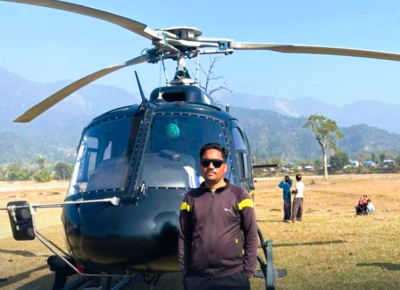
Helicopter from Jumla lands in Salyan due to bad weather
January 30, 2026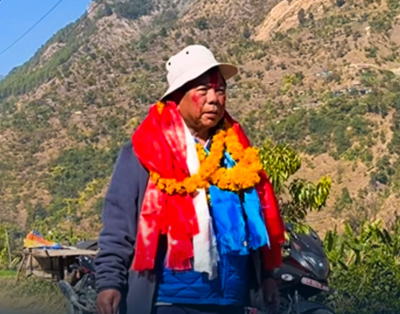
Mahabir Pun's Appeal to Voters: Do Not Sell Your Vote for Money
January 30, 2026
Helicopter from Jumla lands in Salyan due to bad weather
January 30, 2026-1769761552.jpeg)
NRNA Must Rise Above Personal Interests: Foreign Secretary Rai
January 30, 2026-1769761552.jpeg)


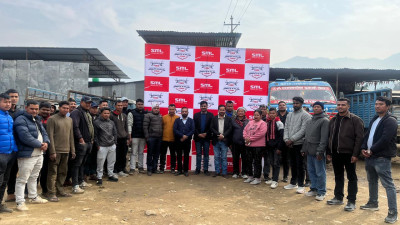
-1769665496.jpeg)


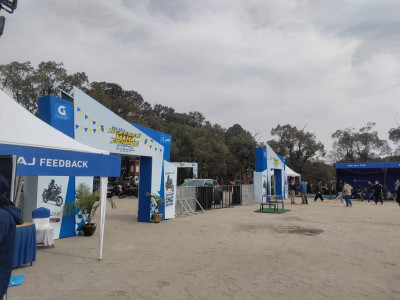
-1769407418.jpeg)
-1769770966.jpeg)
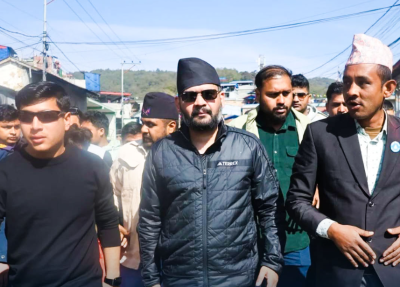
-1769760538.jpg)
